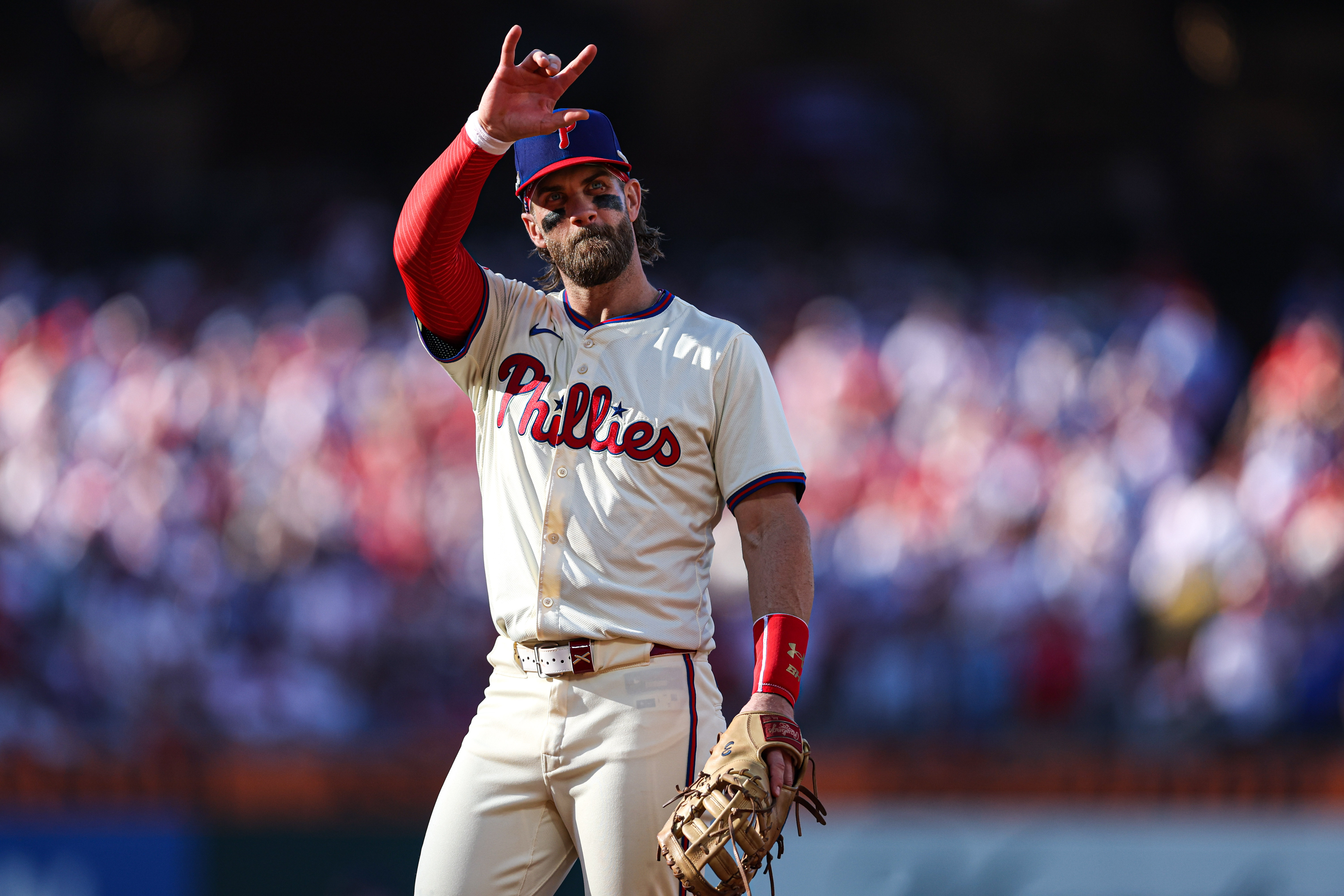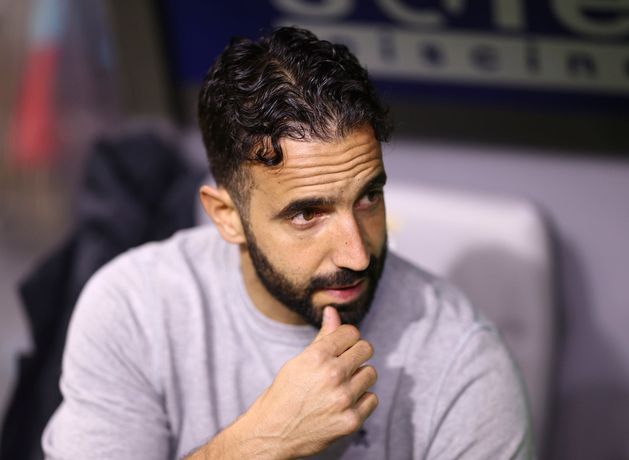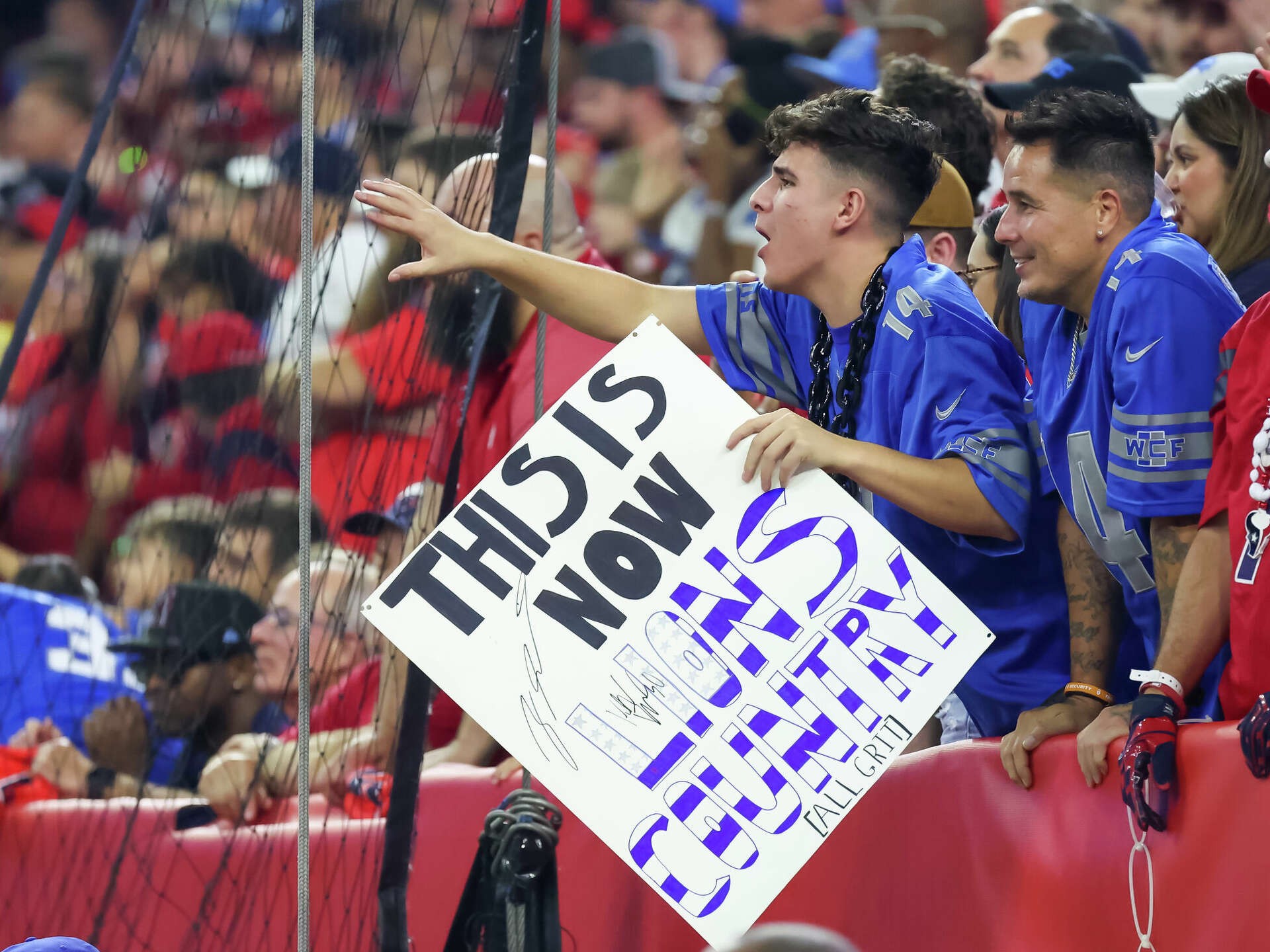Nj
Giants great enters N.J. Hall of Fame (and it’s about time) | Izenberg
J.Davis33 min ago
— Old English Nursery Rhyme Nobody ever gave Phil Simms anything. He could have been Wednesday's child in the limerick or Thursday's, but I will always think of him as the personification of Saturday's child, who worked hard for a living as a kind of Biblical Job in cleats. He goes into the New Jersey Hall of Fame on Saturday night at American Dream Mall in East Rutherford, an honor long overdue. The list of 21 Inductees includes actress Meryl Streep, actor Paul Rudd, founder and CEO of Jersey Mike's Subs Peter Cancro, singer-songwriter Lesley Gore and others. For 14 years, Simms was a New York Giants quarterback who eventually earned two Super Bowl rings and a Super Bowl MVP, was twice named to the Pro Bowl and had his No. 11 retired by the franchise. But in the early years, there were steady injuries, illogical boos and jeers from frustrated fans and skepticism from most of the beat writers. He was the Giants' first-round draft pick in 1979. It started in mid-season that year when he quarterbacked a highly marginal team to six wins in 11 starts. The following year, his body began to betray him year after year. First, it was the shoulder for two seasons, then the knee, and in 1983, he fractured the thumb on his throwing hand and missed 14 games. In four seasons after his rookie year, he played in just 24 games. If he had a battle flag, it would have been crossed crutches rampant on a sea of lidocaine. His rehab programs would have made a Spartan warrior blush. What was not public knowledge during then and the time that followed was a pulled pectoral muscle and a re-damaged thumb. During all of this, his teammate Maurice Carthon told me, "Phil is constantly playing in unbelievable pain. His courage is unbelievable." At its worse, Simms said to me: "For so long and so many times I was thinking the same old crap: 'When will I get well?'" Actually, he never did and it cost him a shot at a second Super Bowl MVP. But the first one — oh, the first one — Jan 25. 1987. Job threw away all his aches and pains and answered any and all questions that day. He was the MVP on that day of days. The Giants trailed Denver at halftime, but Simms led them back. He completed 22 of 25 passes for 268 yards and three touchdowns. He also had 25 rushing yards on three carries. His 88% completion rate broke a Super Bowl and NFL postseason record. At the time, it was clearly the championship game's first great performance by a quarterback. But there was a hell of a lot more to Simms than that. It took me a few years to get to know who he really is. Three years later, we sat alone in his room at the Hamilton Park Center Convention Wing. It was the night before what would be a classic game against the Philadelphia Eagles . He was 31 years old and he has heard the boos and he no longer cared. He knew the critics did not matter. He knew what he had to contend with and they didn't. He knew the anatomical fragility that can be the curse of great players and mediocre ones alike and boo-birds never would. And when I ask what qualities enabled him to overcome the misery of fate's freak attack on his body, he tells me how it was on all candor: "What was I going to do? Quit? Where was I going to go?" The answer did not come to him by chance. Without urging he added: "I am believer that most of your adult life is lived because of your childhood. I grew up in a big family and I always had to take care of myself. I mean, if I wanted a new shirt for school I had to go out and earn it myself. I worked from the age of eight — maybe even younger — every day of my life. "Every single morning until I was in high school, I delivered the morning paper at 5 a.m., and then if I wasn't in sports, I delivered the afternoon paper, too. All my brothers had paper routes, too. Both my parents worked, so when us kids finished, we went back home and made breakfast for the others. "We did it every day for 10 years. I'll never forget the day I quit that paper route. It was the happiest day of my life. "Now (coach Bill) Parcells is my authority. During all the injuries and the bad luck, I did something I would never have with authority before. I told him every chance, 'I hate this. Get me out of here.' I said it every chance I got." It was then that I realized he had an incredible candor about the world of professional football. He moved through a world that chews up athletes and spits them out; a world where a star's arrogance and swagger can make unacknowledged fear disappear — they think But not the paper boy grown older. "Your body betrays you," Simms said. "That's why I work harder than most other quarterbacks in the off-season. It comes because I want to be better than him — no matter who he is. Everybody is scared what will happen to their bodies. I wonder if the athlete ever sees when the end is coming. I think about that." Then the talk turned to the Eagles game and that changed his reflective mood because he always was a competitor and was always focused on the immediate business. Afterward I thought he would never have to worry about the future, and later he proved that when it was time to get off stage. But what a career. I can recall see him in tough games against tough teams. He silenced the loudest critics in the most arrogant community in football. He left with dignity and gave us so many fabulous memories, then had a remarkable TV career as an analyst. Welcome to the New Jersey Hall of Fame, Phil. What took them so long?
Read the full article:https://www.nj.com/giants/2024/11/giants-great-enters-nj-hall-of-fame-and-its-about-time-izenberg.html
0 Comments
0










